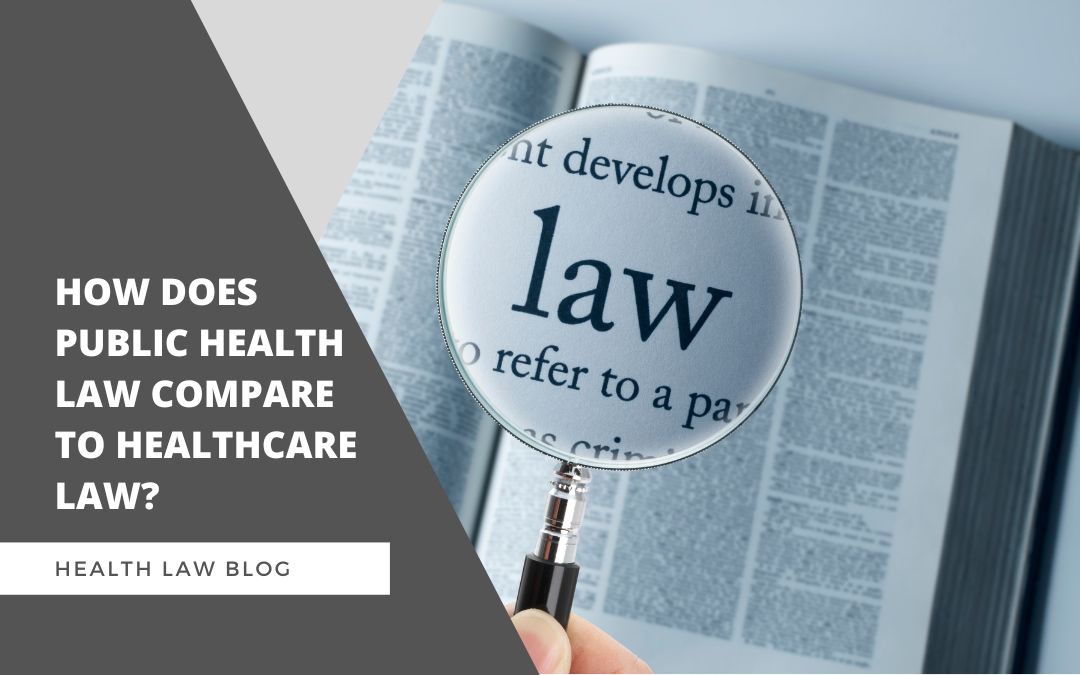Though public health law and healthcare law both contain the word ‘health,’ that is where the similarities between these two legal fields end. Public health law focuses on federal legislative action and advocacy to balance citizens’ rights to autonomy and privacy with the government’s responsibility and authority to ensure societal conditions that allow the public to remain healthy.
Public health law works to protect and improve the well-being of individuals and their local community by researching disease and injury prevention, responding to infectious diseases, and promoting healthy lifestyles. In comparison, healthcare law works to protect the rights of medical patients and creates legal standards for professionals and associations involved in healthcare.
What is public health legislation?
Public health legislation refers to the statutes, regulations, and litigation that aim to prevent disease or injury and advance medical achievements to improve public well-being. Public health legislation ranges from Clean Indoor Air Acts, which prevent the smoking of tobacco products in indoor areas, to vaccination mandates for school-aged children and members of the workforce.
However, public health laws tend to differ between the states, as seen with localized vaccination regulations throughout the COVID-19 pandemic. The reason for this lies in the U.S. Constitution, which explicitly reserves the power to regulate health and safety for the common good — like with public health statutes — to the individual states through the 10th Amendment.
Who enforces public health laws?
Several entities can enforce public health laws, including state law enforcement, tribal law enforcement, and certain departments of the federal government. Federal public health law authorizes state governments to enforce isolation and quarantine regulations, community vaccinations, licensure of medical professionals, and response to public health emergencies.
The federal government can also enforce public health laws that override state and local regulations. For instance, the Centers for Disease Control and Prevention (CDC) is authorized to take measures to prevent the entry and spread of communicable diseases between states under the Public Health Service Act. The CDC is authorized to detain, medically examine, and release patients.

